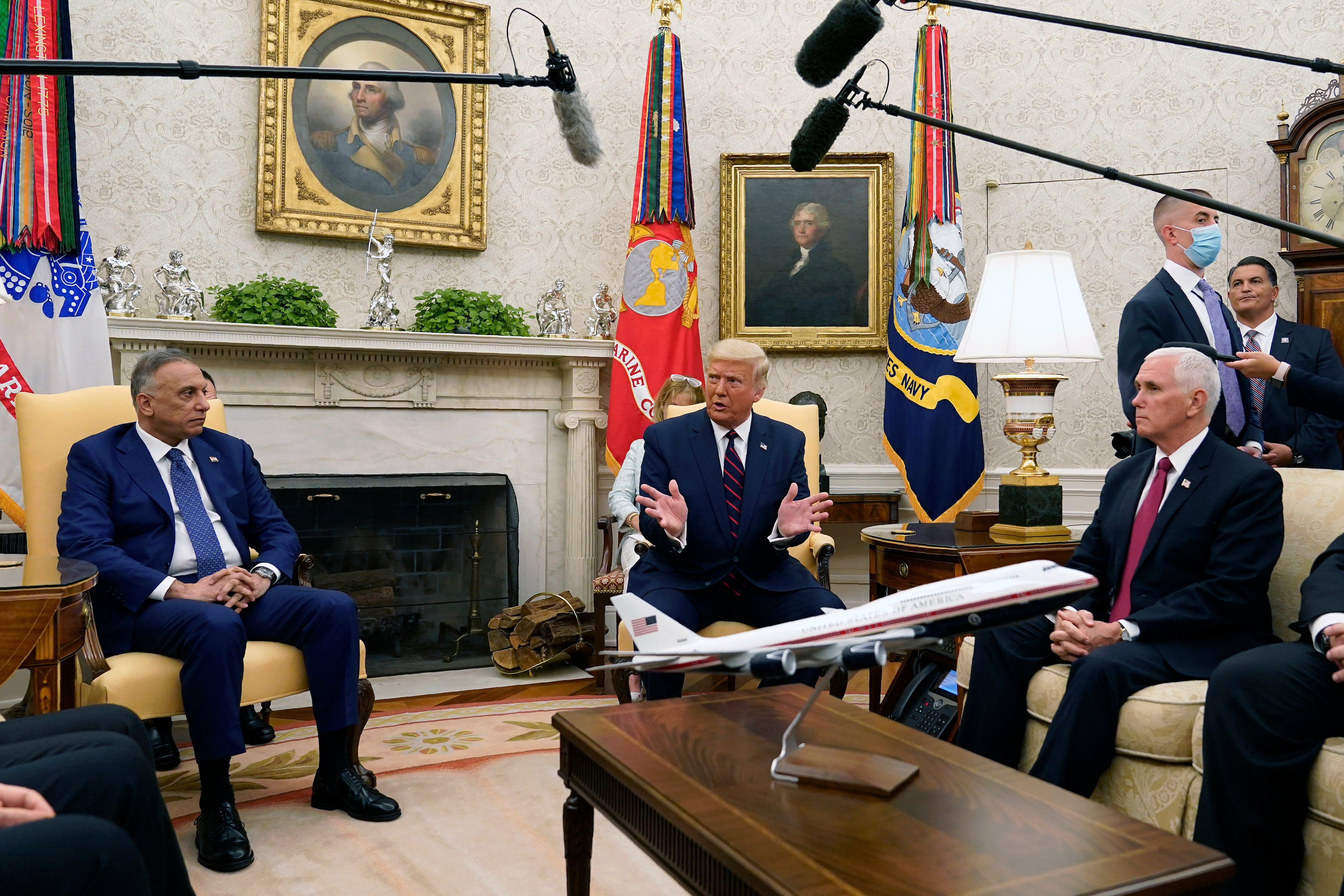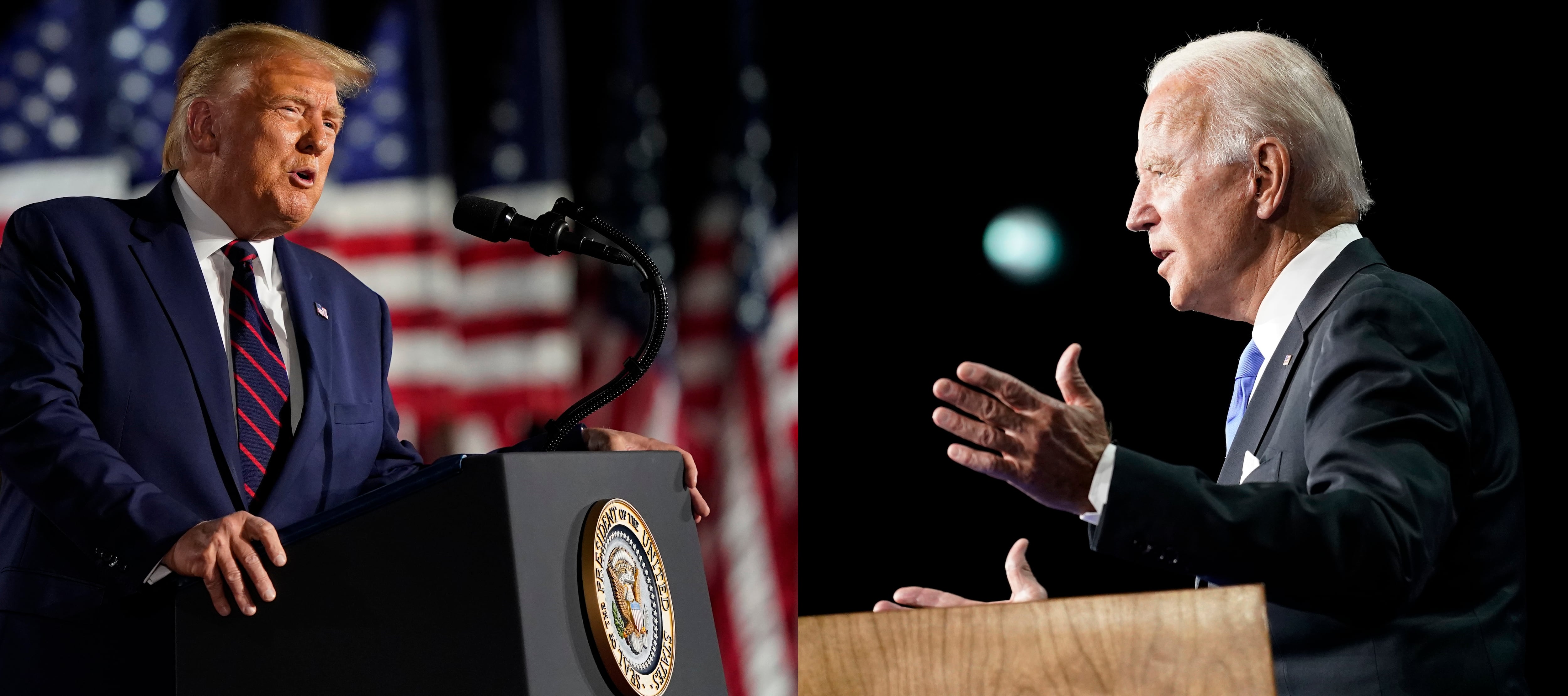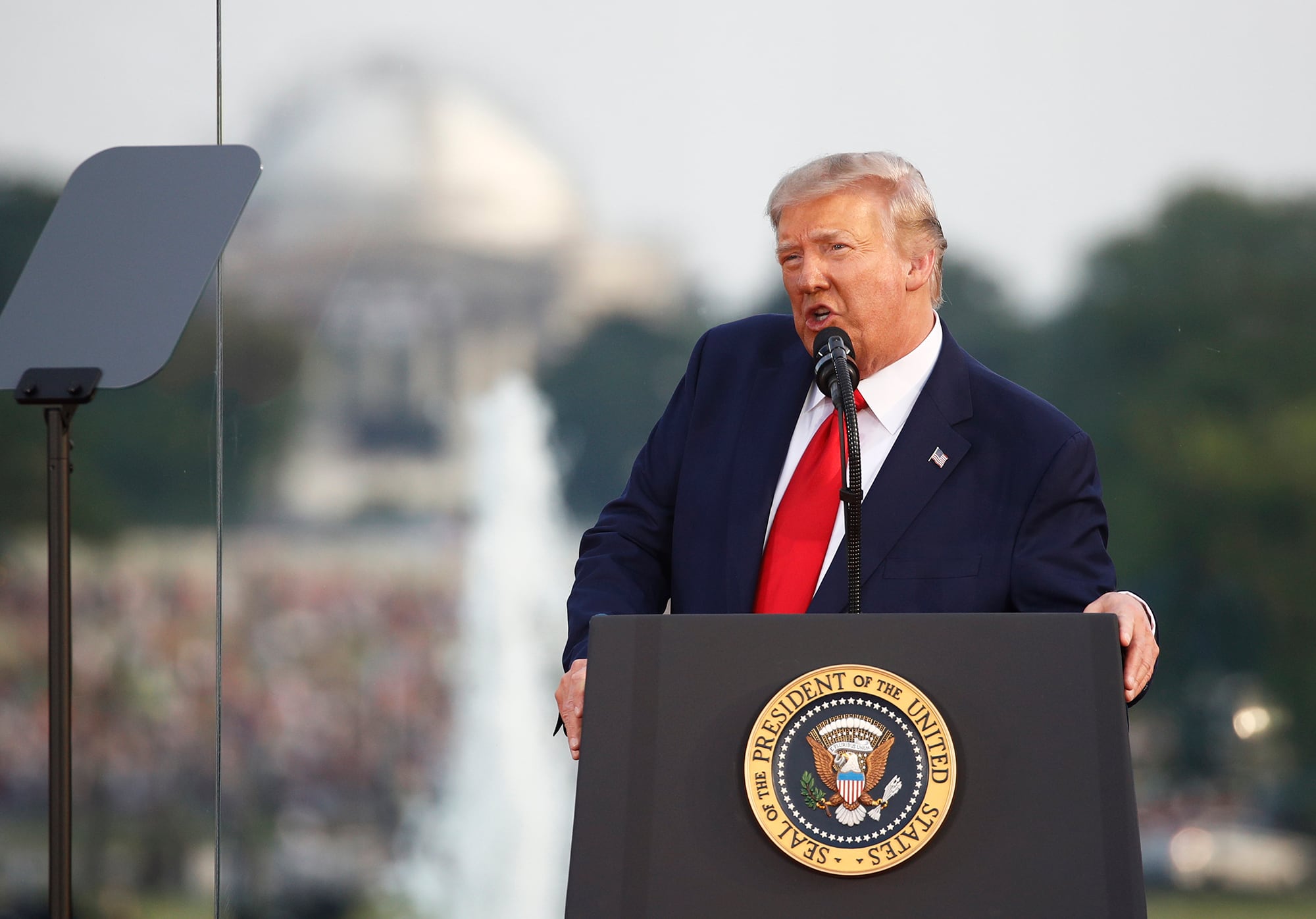WASHINGTON — The United States will pull thousands of troops out of Iraq and Afghanistan by November, the top American commander for the Middle East said Wednesday, as President Donald Trump tries to make good on his campaign promise to get America out of “endless wars.”
During a visit to Iraq, Marine Gen. Frank McKenzie, the commander of U.S. Central Command, said the reduction in Iraq — from about 5,200 troops to about 3,000 — reflects the Trump administration’s confidence in the ability of U.S.-trained Iraqi security forces to handle the militant threat from the Islamic State group.
Later, McKenzie said troop levels in Afghanistan would drop to 4,500 by November. He made the statement in a telephone call with a small group of reporters, according to officials at his Central Command office.
“We’re on a glide slope to be at 4,500 by the November time frame — October, late October, November time frame,” he said, according to a transcript made available by his office. He said the path to 4,500 would be determined in part by the military’s ability to get equipment out of the country.
The U.S. presidential election is Nov. 3.
RELATED

“At 4,500 we’re still going to be able to accomplish the core tasks that we want to accomplish,” he said. “And we’ve shown more than ample goodwill and our willingness to demonstrate that we don’t want to be an occupying force in this country. But we do have strategic interests, vital interests, that compel us to be certain that these entities, such as al-Qaida and ISIS, can’t be guests there to attack the United States.”
The U.S. had reduced its presence in Afghanistan to 8,600 in June and was known to plan further reductions, although McKenzie had not previously cited a projected number. He gave no exact date for reaching the 4,500 level; he said a specific date has been targeted but he would not reveal it.
The moves come as Trump faces criticism for allegedly denigrating American war dead as “losers” and “suckers.” He has denied the allegation, first reported by The Atlantic magazine last week, which surfaced at a time of heightened tension in his relationship with the military. Trump added to the perception of a growing split with Pentagon leaders when he said on Monday that they want to fight wars to boost the profits of defense companies.
Trump has been trying to make the case that he has fulfilled the promises he made four years ago as he campaigns for a second term.
RELATED

U.S. forces have been in Afghanistan since 2001 when they invaded in response to the 9/11 attacks planned by al-Qaida, the militant group that enjoy refuge while the Taliban ruled Afghanistan. The U.S.-led invasion quickly toppled the Taliban from power, but the ensuing conflict dragged on far longer than expected.
U.S. troops invaded Iraq in 2003 and left in 2011 but returned in 2014 after the Islamic State group overran large parts of Iraq.
In June, McKenzie announced that the number of U.S. troops in Afghanistan had dropped to 8,600, the level that the U.S. agreed to in a February peace with the the Taliban that also calls on the U.S. to withdraw entirely by next spring.
McKenzie said in recent weeks that he had doubts about a full withdrawal because of questions about the Taliban’s continued relationship with al-Qaida and high levels of violence in Afghanistan. On Wednesday he spoke confidently, however, about conditions in Iraq and the outlook for stability there.
“In recognition of the great progress the Iraqi forces have made and in consultation and coordination with the government of Iraq and our coalition partners, the United States has decided to reduce our troop presence in Iraq from about 5,200 to 3,000 troops during the month of September,” McKenzie said during his Iraq visit, according to an excerpt of his remarks provided by his office.
McKenzie said the remaining U.S. troops would continue advising and assisting Iraqi security forces as they attempt to root out remnants of the Islamic State group, sometimes called ISIS.
“The U.S. decision is a clear demonstration of our continued commitment to the ultimate goal, which is an Iraqi security force that is capable of preventing an ISIS resurgence and of securing Iraq’s sovereignty without external assistance,” McKenzie said. “The journey has been difficult, the sacrifice has been great, but the progress has been significant.”
Although Trump has talked of withdrawing completely from Iraq, Pentagon officials have cautioned that a U.S. troop presence remains necessary to guard against an IS resurgence and to help the Iraqi government limit the political and military influence of Iran, which supports militias operating inside Iraq.
Trump aides have faulted the Obama administration for having pulled out of Iraq too soon in 2011 but say the time is now right.
“This is a president, when he says I’m going to end endless wars, it’s not a slogan like it’s been for Democrats and past presidents,” Kayleigh McEnany, the White House press secretary, said Wednesday on Fox News.
RELATED

Tensions spiked between the U.S. and Iraq in January after a U.S. drone strike near the Baghdad airport killed Iranian Gen. Qassem Soleimani and Iraqi militia leader Abu Mahdi al-Muhandis. Angry Iraqi lawmakers, spurred on by Shiite political factions, passed a nonbinding resolution to oust all U.S.-led coalition forces from the country.
In response to the Soleimani killing, Iran on Jan. 8 launched a ballistic missile attack on al-Asad air base in Iraq, which resulted in traumatic brain injuries to more than 100 American troops. Two months later, U.S. fighter jets struck five sites in retaliation, targeting Iranian-backed Shiite militia members believed responsible for the January rocket attack.





